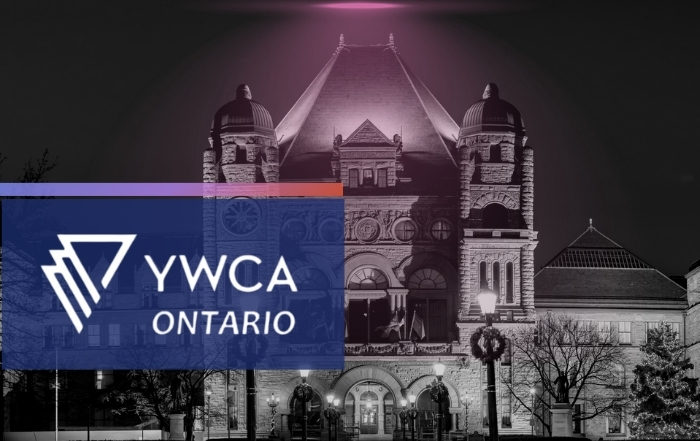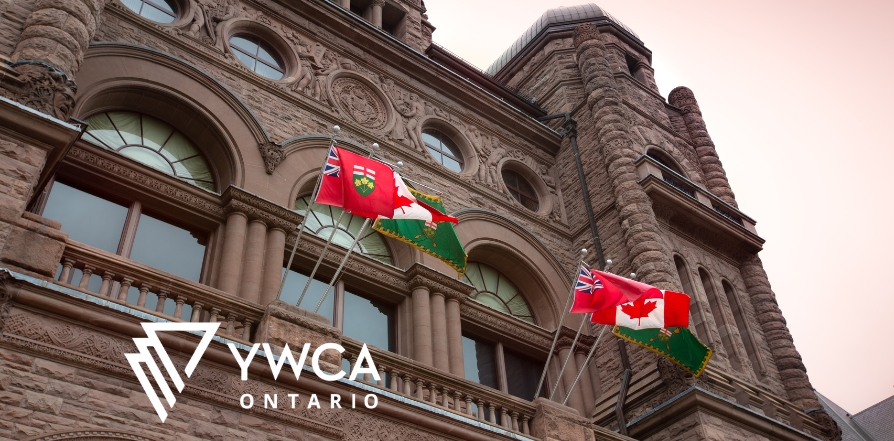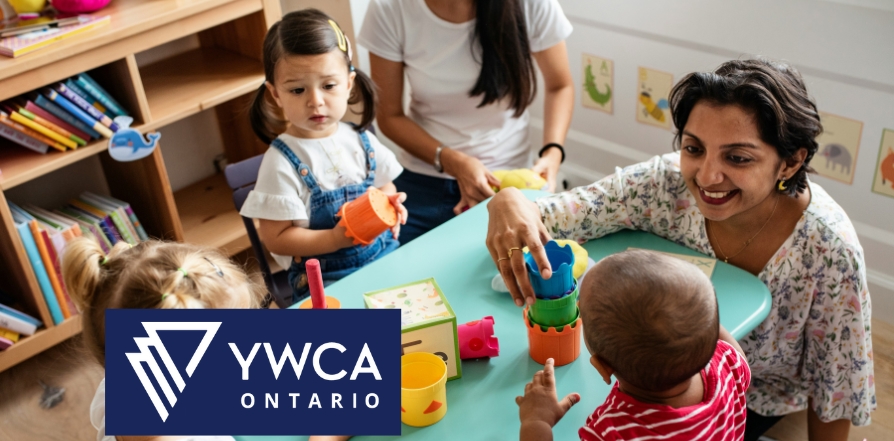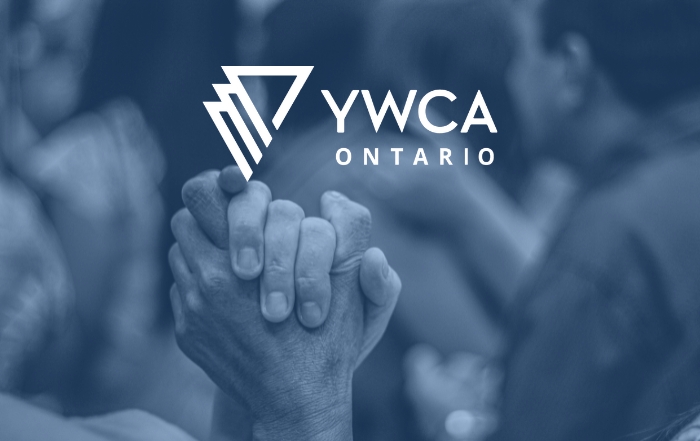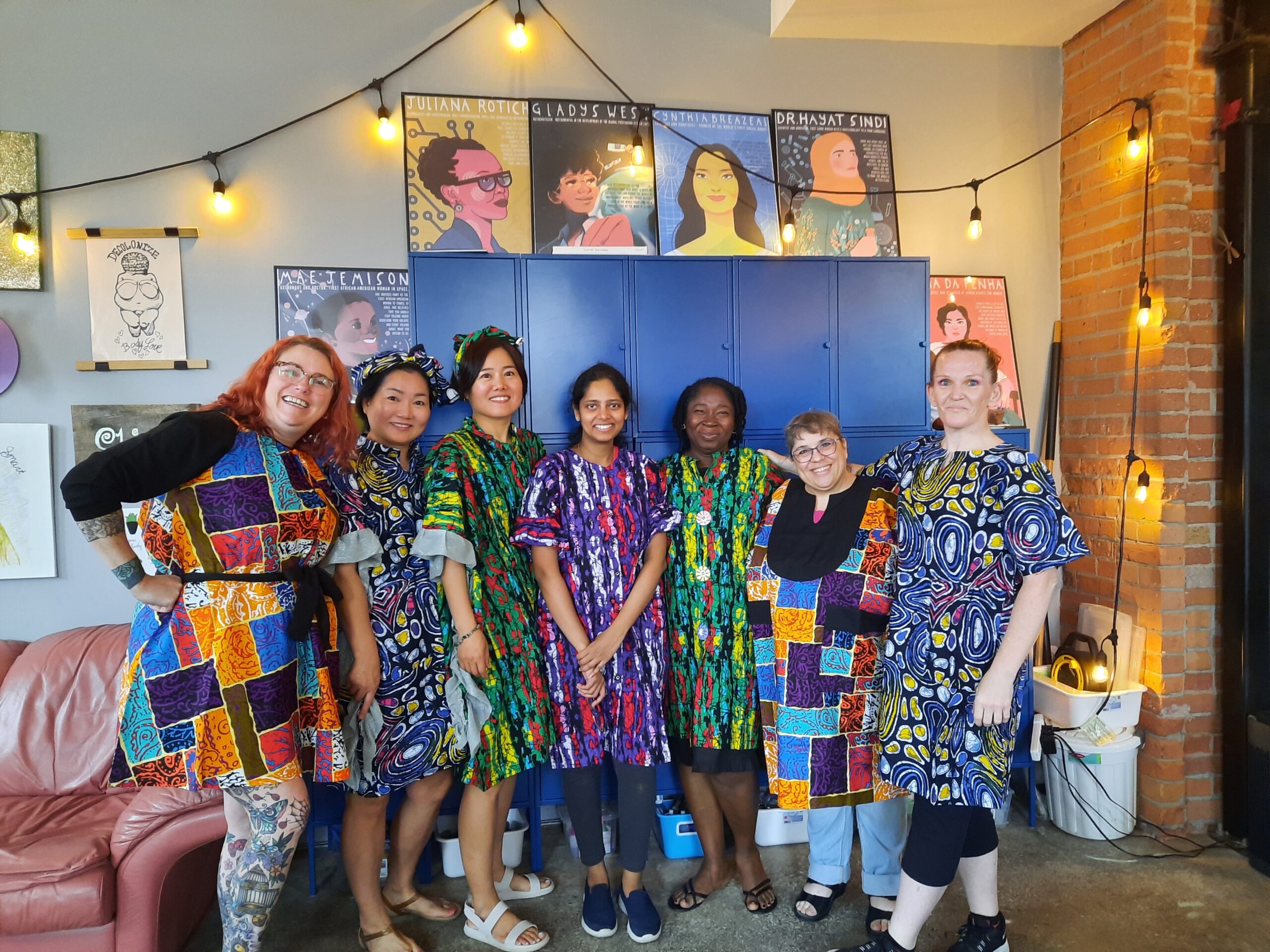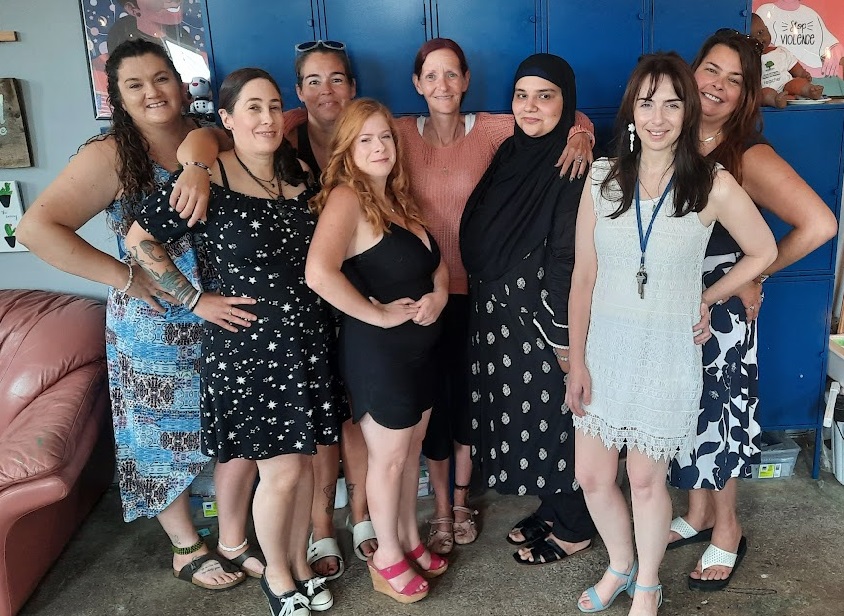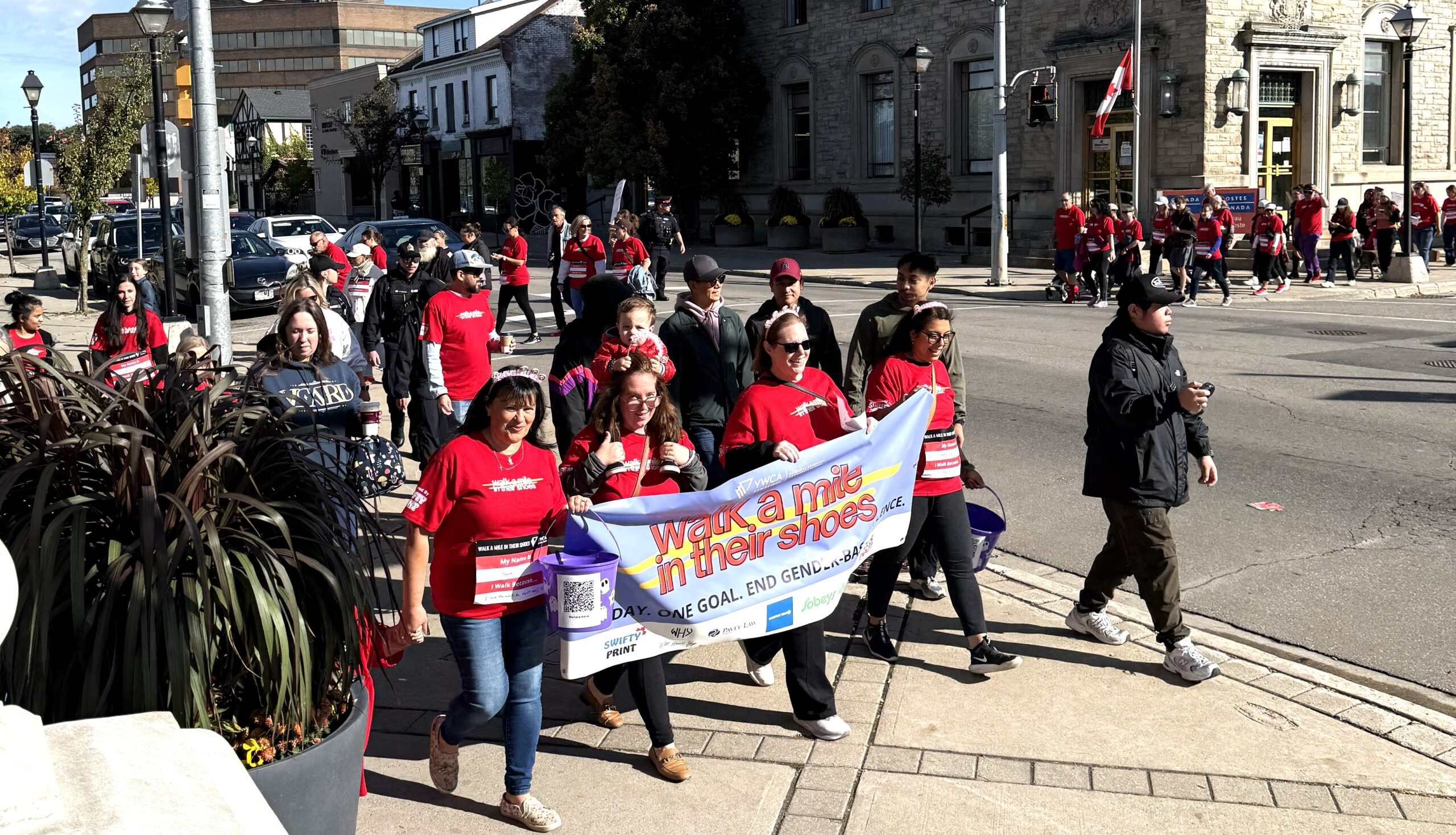Ontario YWCA Coalition Releases Vision for an “Equitable, Gender-Responsive Budget” in Joint Pre-Budget Submission to the Minister of Finance.
[Click here for a PDF of the document]
YWCA Ontario is a provincial coalition of YWCA Member Associations. We offer a range of housing programs and services including Violence Against Women (VAW) shelters, employment and training programs, community supports, child care services, and girls’ programs – all designed to address the needs of women, girls, and gender-diverse people and their families. We also engage in systemic advocacy to advance substantive gender and racial equality in our province. Combined, we serve more than 50,000 people every year across Ontario.
We are presenting this submission during the second provincewide shutdown of the COVID-19 pandemic – one that has failed to institute meaningful supports for women and families. While the Province has made efforts to support VAW shelters, families and businesses, we have not seen the kinds of additional funds required to support people to safely stay at home and to help working women with school age children remain in the workforce. We also continue to be concerned about the situation facing women fleeing violence, as well as the lack of affordable housing in Ontario to help survivors of violence rebuild their lives in safety and dignity.
To support an equitable, gender-responsive 2021 budget, the YWCA Ontario Coalition recommends the Province:
1. Mandate 10 paid sick days immediately.
2. Institute a $4 per hour pandemic pay premium for child care, shelter and other front-line workers during the pandemic.
3. Invest in the child care sector including increasing base-funding and additional investments to prevent nonprofit child care closures.
4. Enhance income security by raising OW and ODSP rates to $2000 per month and properly staff Ontario’s Social Tribunal System.
5. Support women’s labour market participation by taking a multi-year funding approach for pre-apprentice training programs, creating a specific category for women in Employment Ontario, and targeting women in a concerted manner with the new $115 million Skills Training Fund.
6. Prioritize housing investments to meet Ontario’s affordable and supportive housing needs and offer rent relief provisions.
7. Invest in girls’ programming. Currently, there is no provincial funding for girls’ programming at all.
8. Stabilize enhanced funding for VAW shelters and create a provincewide strategy on gender-based violence.
9. Help nonprofits at risk of closure through a sector stabilization fund and through greater access to existing funding.
—
1. Mandate 10 paid sick days immediately
Inadequate paid sick leave is fueling the spread of the COVID virus. An estimated 60 per cent of Ontarians do not have paid sick days, a number that is much higher for Black, Indigenous and racialized women. We believe that no one should have to choose between staying home when they are feeling sick or paying bills. Public health experts, including Canada’s Chief Public Health Officer Dr. Theresa Tam, have recommended paid sick leave. The association representing all 34 of Ontario’s Medical Officers of Health and local Boards of Health has also issued a public letter to the Province calling for paid sick leave.
Paid sick leave is an important public health measure that can save lives. We have depended on the services of many precariously employed workers to keep Ontario running during the emergency order and throughout this pandemic – and none of these workers should lose out on pay if they are not feeling well or their child wakes up with a sore throat. Now is the time for the Province to institute paid sick leave and ensure the safety of all workers, as well as their families.
• Institute 10 paid personal emergency leave days per year for every worker.
• Ensure workers who access these paid sick days are not penalized with fewer shifts or demotions.
2. Institute pandemic pay premium for child care, shelter and other front-line workers during the lockdown
The ‘pandemic pay premium’ is a powerful financial acknowledgment of the dedication, long hours, and health risks assumed by front-line workers. Although Personal Support Workers continue to receive a wage enhancement, front-line workers in our sector (serving children, women without homes, and those fleeing gender-based violence) no longer receive a top up. While Violence Against Women shelter staff continue to be dealing with a workplace exclusivity order, this reduces the income of many relief workers on whom many agencies depend. Many front-line jobs are performed by racialized women. It is important the Province demonstrates its commitment to gender and racial equality by enhancing support to front-line workers.
• Reinstate the $4 per hour salary increase for front-line workers that ended in August, 2020.
• Expand the top-up to include child care workers who provide an essential service in our society, including emergency child care during lockdown.
3. Introduce additional supports for families with children and financial protections for the child care sector
In a Statistics Canada survey published in December 2020, 64% of women said they have been responsible for managing their children’s education during the pandemic, compared to 19% of men. More women are assuming care responsibilities in order to support their children’s education with disastrous consequences for workforce gender equity and future economic growth. Nonprofit operators across the province are facing the threat of sector-wide child care closures as well, creating additional barriers for women’s labour market participation. More than 100 child care centres have been forced to close since the pandemic began because they cannot afford to stay open.
• Invest $500 million in new provincial funding to stabilize the child care sector.
• Partner with the federal government to transition to a publicly funded child care system.
• Provide additional income support for each child to assist with schooling, technology and other expenses related to caregiving work and home schooling.
• Scale up investment in the education system so that children can learn in smaller classroom settings to avoid repeated school closures.
4. Enhance income security
Ontario’s poverty is growing and more people are accessing income supports and for longer periods of time. However, Ontario’s social assistance program does not meet basic needs. The women we serve who are on Ontario Works (OW) and the Ontario Disability Support Program (ODSP) live in extreme poverty – especially single women – and struggle to survive. The high cost of housing alone exacerbates this situation.
Ensuring the health and dignity of women on low and fixed-incomes, reducing poverty, and supporting families must be of paramount concern to government. All women, and their children, in our province should be able to live with dignity, and with security.
• Set rates for all income supports at levels that provide livable incomes for recipients by ensuring the threshold of $2000/month is met.
• Remove immigration status barriers from eligibility to income support so that all people in Ontario can access income security measures.
• Minimize claw back on income supports from other jurisdictions and reinvest any revenues from remaining claw backs into income supports for people who access income supports and other forms of assistance.
• Address the breakdowns and backlogs in the Social Benefits Tribunal so everyone has access to a fair and expedient hearing.
5. Gender-specific investments in employment and training
Many of the women we serve are trapped in precarious jobs – low-wage, part-time employment – often without the benefit of child care. Studies from the United Way of Greater Toronto highlight the disproportionate number of racialized women trapped in these jobs in the GTHA region; research out of Ryerson University has linked precarious work to negative health outcomes for racialized and immigrant women. The women who access our skilled trades and employment services come from diverse backgrounds – what they have in common is a desire to create a better future for themselves and their children.
Good jobs with livable incomes that allow women to save money and plan for the future offer a promising path out of poverty. They can also support Ontario’s economic growth and address the province’s skilled trade shortage. The pandemic, in particular, has harmed women’s labour market participation and our programs simply cannot evolve and strengthen on single-year funding. The $115 million in the newly announced Skills Development Fund is a good start, but much more focus on women is critical. Women must be considered a priority employment group, and it is imperative employment investments have a clear gender lens.
• Recognize women as a specialized demographic within the transformation framework of the Employment Ontario program.
• Use the bulk of the $115 million in the new skills development fund to target women’s upskilling – particularly those women impacted by COVID – and to support women on low incomes to access the labour market.
• Invest in women-specific training programs provided by women-centered nonprofits, and ensure that investment is multi-year rather than annual.
6. Prioritize housing investments and take immediate action on a rent relief
The lack of affordable and supportive housing in Ontario is placing women and their families in harms way. Before the COVID-19 crisis, nearly 750,000 households were in core housing need and over 185,000 on waiting lists for subsidized housing in Ontario. In light of the disproportionate impacts of COVID-19 on low and fixed-income households, these needs are expected to grow significantly. By 2028, at least 99,000 new affordable rental and supportive housing units need to be built and 260,000 community housing units need to be repaired.
Thousands of Ontarians are also facing evictions and are at risk of homelessness. Residents are struggling to pay their rent due to COVID-related work disruptions and other challenges. Women and racialized communities are concentrated in industries that have been impacted by COVID, and many have seen their incomes reduced through job losses and additional unpaid care responsibilities at home due to school closures and caring for elderly family members.
A complete eviction moratorium and a robust rent relief program for unemployed or low-earning tenants is needed to ensure thousands of residents and their children do not fall into homelessness. Creating a realistic plan to preserve tenancies and prevent evictions, both now and at the end of the pandemic, will be critically important for the safety and wellbeing of countless communities throughout the province.
• Deploy as much as possible of the $1.4 billion funding for rent payment support under the Canada-Ontario Housing Benefit and double Ontario’s contribution of $700 million.
• Immediately deploy Ontario’s share of federal funding under the $1 billion Rapid Housing Initiative to acquire, develop and maintain affordable housing and match that with Ontario’s own contribution of $400 million.
• Provide additional funds to support the provision of wrap-around services for those housed through the Rapid Housing Initiative.
• Invest in creating 30,000 new supportive housing units over the next 10 years to meet the needs of individuals living with mental health issues and to make significant progress in alleviating chronic homelessness across the province.
7. Dedicated funding for girls’ programming
The pandemic is taking a toll on youth mental health leaving many children feeling socially isolated and anxious. YWCA Member Associations across Ontario provide girls’ life skills and leadership programs that promote well-being, community connection and resilience. However, there is no dedicated provincial funding stream for girls’ programs making it extremely difficult for nonprofits to provide educational opportunities. More than ever before, girls’ programs are needed to support girls, young women, and gender-diverse youth. Investing in girls’ programs will ensure girls across the province have access to safe and supportive spaces, and will assist YWCA Member Associations scale up successful youth services that are so desperately needed.
• Invest $30 million to create a dedicated girls’-specific youth fund that women’s organizations – and other organizations with emerging and established girls’ programs – can access.
8. Stabilize funding for VAW shelters
With women’s shelters working at reduced capacity due to physical distancing measures, COVID-19 is trapping women and children in abusive homes and making it harder to stay safe. Violence against women is persistent, life-threatening and on the rise.
Over the last three years, VAW shelters have received VAW enhancement funding from the Province. This money has flowed outside of core operating funding allotment. While this funding has been appreciated, stabilizing this funding in the 2021 core operating budgets of VAW shelters will create continuity of service, improved quality, and increased service delivery.
• Stabilize funding for VAW shelters by including VAW enhancement funding in the core operating funding allotment.
• Create and implement a provincewide strategy to eliminate gender-based violence. Through a coordinated action plan, the Province can create the conditions to lift women and children out of gender-based violence, so that they can move onto a violence free life for their families. Programs need to link income support with education, employment, affordable housing, child care, and services tasked with promoting safety from gender-based violence to improve social and economic outcomes.
9. Nonprofit sector investment
Nonprofits are facing many challenges related to the pandemic, and women’s sector organizations, in particular, are facing difficulties. While funding remains stable for most YWCA Member Associations, the future is uncertain. Many of our Member Associations are anticipating large deficits due to the loss of revenue-generating programs. We are concerned for community agencies that are either at risk of shutting down or scaling back during a time of heightened community need – particularly organizations in the women’s sector. Without a thriving nonprofit sector, economic recovery from COVID seems unlikely, particularly since so many women are employed by the sector and we represent a significant part of Ontario’s economy.
We continue to support the calls for a sector stabilization fund by the Ontario Nonprofit Network and specifically support the two recommendations outlined in their 2021 Budget submission:
• Retool the Small Business Support Grant to cover a broader range of small nonprofit employers, i.e., those that remained open as essential service (one-third of the sector) and those that were required to halt operations due to pandemic restrictions prior to the December 26 Provincewide Shutdown. Communicate publicly that nonprofits are indeed eligible if they meet the criteria.
• Introduce micro-grants for volunteer-only nonprofits (with no paid staff) to provide relief for reduced fundraising revenues and help them adapt.
In closing, we offer our assistance as civil society partners across the province to move forward with urgently needed investments that will support an equitable, gender-responsive budget. We remain deeply committed to building a better future for women, girls and gender diverse people. We invite the Province to continue working with us and utilize our expertise – and that of other civil society partners – to ensure we can recover from COVID and build a stronger, better and more equitable future together.
Sincerely,
YMCA-YWCA of the National Capital Region
YWCA Cambridge
YWCA Durham
YWCA Hamilton
YWCA Muskoka
YWCA St. Thomas-Elgin
YWCA Sudbury
YWCA Toronto
For more information, please contact:
Jasmine Ramze Rezaee
Director of Advocacy and Communications
YWCA Toronto
Telephone: 416.961.8101 x 321
Email: jrezaee@ywcatoronto.org


